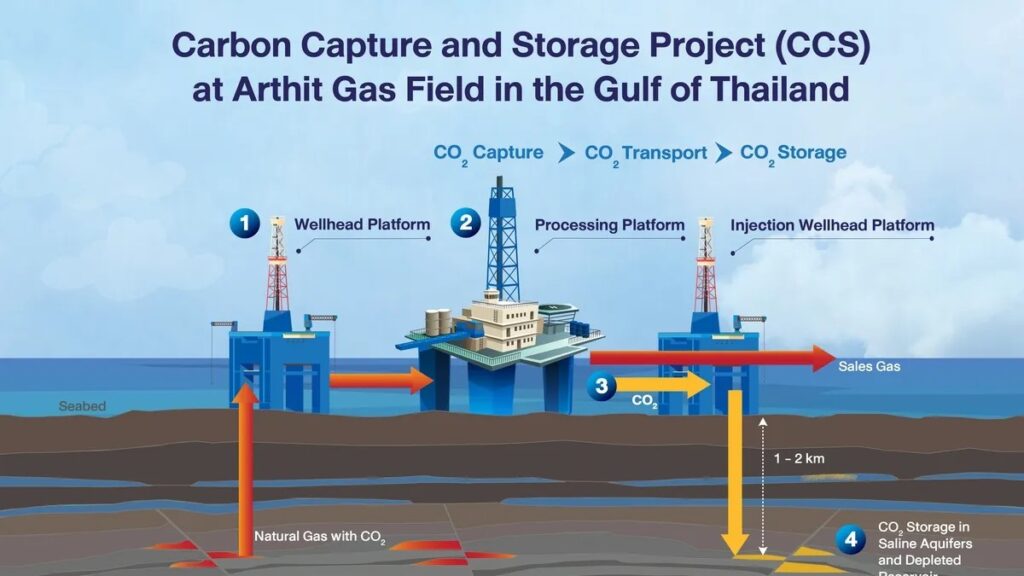General – Carbon Storage Thailand
Thailand’s national oil and gas company PTT Exploration and Production has announced a collaboration with Japan’s Inpex to research the potential for carbon storage in the Northern Gulf of Thailand.

This endeavor is part of a larger international initiative involving the Thai Department of Mineral Fuels and the Japan Organization for Metals and Energy Security.
The objective of the study is to aid in the development of a carbon capture and storage (CCS) hub in the Eastern Economic Corridor (EEC) of Thailand.
PTTEP is concurrently conducting a feasibility study for a CCS hub in the EEC, aimed at curbing CO2 emissions from the operations of the PTT Group in Rayong and Chonburi provinces, as well as from nearby industrial sectors. The overarching ambition is to utilize CCS technology to deposit CO2 in the Gulf of Thailand. Montri Rawanchaikul, CEO of PTTEP, has emphasized the company’s proficiency in the subsurface of the Gulf of Thailand and its ongoing CCS project at the Arthit gas field.
Meanwhile, PTTEP is leading the feasibility study of PTT Group’s Eastern Thailand CCS hub initiative in the EEC which aims to reduce CO2 emission from the group’s operational sites in Rayong and Chonburi provinces as well as nearby industrial areas using CCS technology and storage potential in the Gulf of Thailand.
PTTEP is also progressing with the first CCS project in Thailand at the Arthit gas field in the Gulf of Thailand. With Front-End Engineering Design (FEED) phase now completed, PTTEP expects to start CCS operation at the Arthit field in 2027 to reduce 700,000–1,000,000 tonnes of CO2 per year from gas production.
The outcome of CCS study at EEC, Arthit field, and the Northern Gulf of Thailand CCS exploration project will deepen geological insights into the storage capacity and help Thailand to meet net zero greenhouse gas emissions target by 2065.
